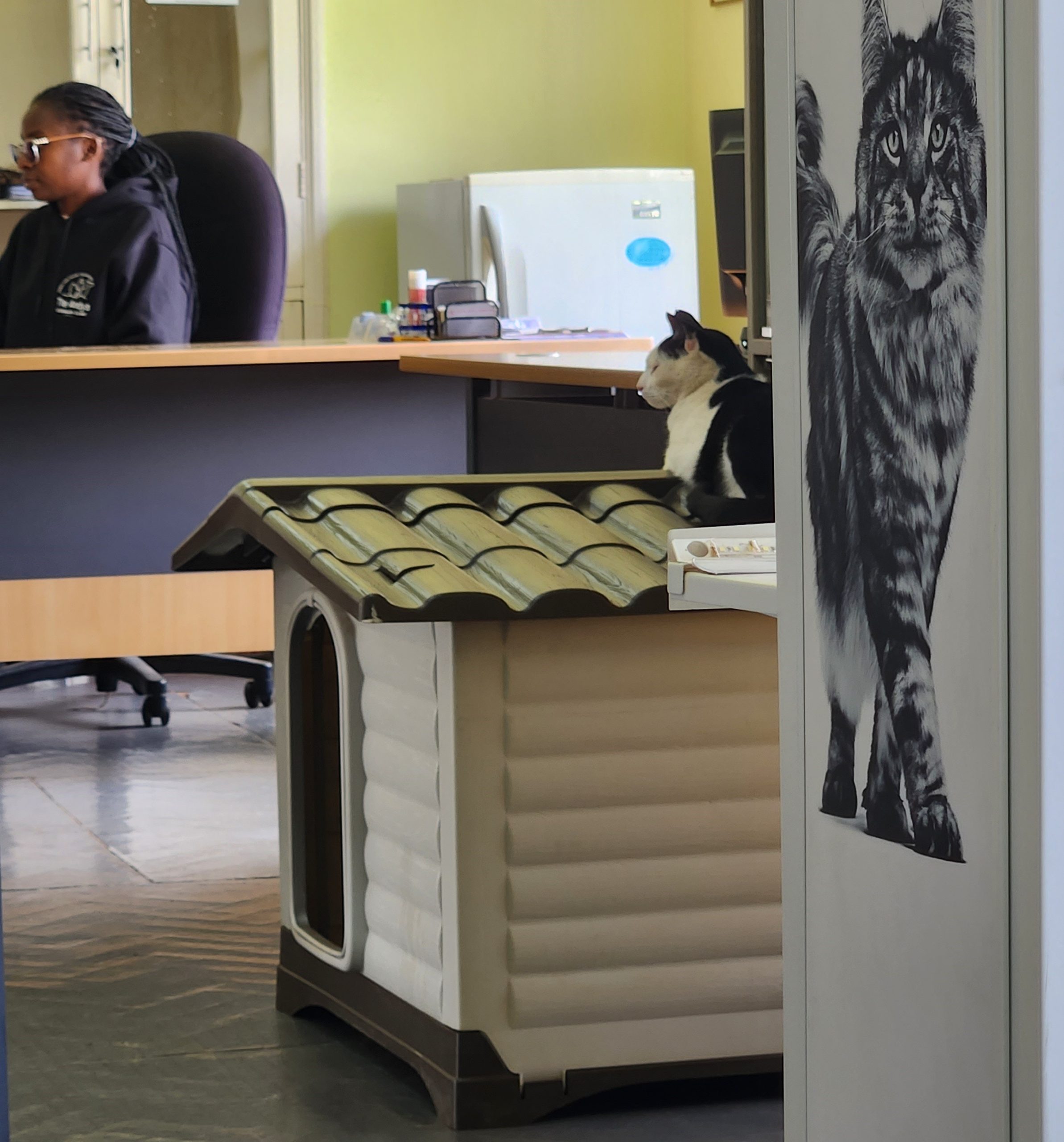Recommendations for new cat owners
Cats are fun, playful, loving, independent, smart, curious and entertaining. They are easy to maintain especially when you learn the basics such as feeding, grooming, general health, safety tips and litter management. However, cats are not as easy to train as dogs and require patience to have them fully domesticated.
Building kittens confidence
Many kittens tend to be shy and reserved and may hide under furniture until they are sure they can trust you. They can cover up sickness leading to delayed medical attention. Simple reward based techniques are helpful in strengthening your bond with the cat. The aim of training cats is to allow them to choose how and when they interact with humans and other pets in your home. This makes their interactions safe and predictable for those around them. Cats are playful and they need toys and attention which they crave from their owners and family. They need space to express their joyful spirit and therefore your home environment should be safe. Cats love high places to climb and hide such as shelves, boxes or covered furniture. They shy away from the noisy, hustle and bustle of human activity. A scared cat with dilated pupils crouched in a corner are some of the things that indicate that your cat is frightened. Cats are territorial and introduction of a new pet or many visitors are some of the things that can create anxiety and stress. This should be done in careful manner and always pay attention to your cat’s body language and behavior to different interactions such as muscle relaxation or forward movement of the ears.
| Feeding CatsCats are meat eaters and this makes them true carnivores. They depend upon the nutrients present in meat to sustain their dietary needs.Domesticated cats will love freshly killed meat from rodents, rabbits, amphibians, birds, reptiles and fish, but cats are also opportunistic feeders and will readily take cooked food as well as dried cat food when offered, as long as the food is palatable.The natural diet of cats therefore does not include any vegetable matter, although cats have been known to eat certain plants and grasses occasionally, usually as an emetic or to help them vomit.Cats cannot synthesize some essential nutrients required for survival, including the amino acids like taurine and arginine, so these nutrients must be sourced from fresh meat in the natural diet.Cats lack the specific physiology to extract nutrients efficiently from plant-based materials, and require a high protein diet, which is why high-energy meat is the optimal food.Vegetarian cat food must be fortified with nutrients such as taurine and arachidonic acid that cats cannot synthesize from plant materials.Kittens need optimal calcium to phosphorus ratios for proper bone growth. Fractures and weak bones in kittens are mostly associated with poor diet. Nursing mother cats will have a higher need for calcium in their diet as they breast feed their kitties.Several dietary nutrients have a role in the overall health especially skin and hair. Both Omega-6 and omega-3 fatty acids are important for good hair and skin. Unkempt hair and some of the allergies may be caused by poor diet.Male cats tend to get bladder stones which may caused mainly by nutritionally imbalanced diet.Most good commercial foods have the necessary nutritional ingredients that support optimal health in cats. It is important that cats’ nutritional needs are met when giving wet and /or dry foods. Read the labels careful just to make sure that the nutritional support needed by your cats is available in the food before buying.Vaccinations and dewormingSome of the kitties are born already infected by worms as some of them cross the placenta while in utero. Therefore deworming of the pregnant queen is essential for the health of the kitties when they are born. Kittens need to be dewormed every two weeks once they are born, kept in a clean and warm environment. Vaccinations against cat flu and feline pan leucopenia virus commence at 6 to 8 weeks. Sneezing, coughing and diarrhea caused by these viruses are very difficult to treat and weigh down on both the patient and the owner finances from the medical bills. Rabies vaccinations are done at 12 weeks and a booster repeated in 4 weeks time. These vaccinations are important for cats and preventable zoonotic disease like rabies in human.Litter box training and useCats naturally like relieving themselves in a sandy area which makes it easier to introduce the litter box. Consider dust-free litter as dust may create an allergy like feline asthma. It is also important to be consistent with the litter you provide as cats get used to specific brand and may not appreciate frequent changes. Provide privacy by placing the litter box in a less trafficked location to avoid sudden noises that would distract or frighten kittens. Avoid moving the box often from a room to another as it may confuse kittens and cause accidents in your home. You may need to place kittens in the litter box after meals, when they wake up or when you see them squatting in others places until they understand the purpose of the box. Avoid disciplining a kitten when she is inside the litter box lest they associate it with punishment or distress and hence develop an aversion to it. Before the kittens are fully litter-trained, consider confining them in a small area to ensure easy access to the litter boxes and minimize accident areas. If accidents occur, clean them thoroughly to remove any traces of urine or feaces. This prevents them from soiling the same areas in future. Feeding kittens during the same time of the day helps with predicting when they will need to use the litter box as they feel the urge to have bowel movement approximately twenty minutes after meals.It is essential to have a litter box or two for each of your cats. The boxes should be large enough for your cat to sit, move and dig around comfortably. The walls should be of a height that allows for spraying and preventing litter from spilling out as they dig. Covered litter boxes are an added advantage since they trap odors and make your cat feel confined. Litter boxes should be easily accessible and comfortable or your cat may look for somewhere else to relive themselves, especially in the laundry baskets, potted plants and carpets. Scoop the box once or twice a day for general cleanliness and replace the litter at least every two weeks after which the box should be cleaned before adding new litter. Always check the stool and urine for any changes in consistency and presence of worms, blood or mucus. This is a good way of monitoring your cats bowl movement and health.Grooming catsAlthough cats naturally groom themselves, they consider brushing as a relaxing exercise. Brushing regularly helps to remove dead hair and dirt as well as keep the skin healthy. How often you brush your cat depends on the length of their hair. Long-haired breeds need to be brushed twice or thrice a week while cats with short hair can be brushed just once a week. We have affordable grooming gloves that you can purchase from our clinic for your comfort and convenience. Baths are recommended especially for cats with fleas, outdoor cats or the older ones who are not able to groom themselves. They are tick and flea control products which are spot on vials or the new tablets that take care of infestation for months. You can always contact our clinic for advice and grooming services. Trim the claws to prevent them from breaking, fraying, destroying furniture or accidentally scratching you when you hold and play with them. Always have a scratch post in the house as this will help to avoid your expensive furniture to be one. The scratch post should be of good height so that they are able to extend their body, pulling the back and shoulder muscles. This allows flexibility and the benefits of stretching after exercise.Bottom-lineBefore adopting any pet into your home, ensure that you can afford time and care for them. See that you have a good environment or create one for the pet to live in. Have a schedule that is predictable to allow time with your pet. Adopting an older cat is also a suitable option as they require minimal training. You will be in a better position to know the health status, sociability and activity level of an older cat as opposed to kittens. It is essential to consider the social behavior of your existing pets before introduction of the new arrival. If your other pets have a history of aggression or fear around other animals, then adding a new cat may not be such a good idea. Cats are known to be independent but they are a big fun of us and they love the attention that we accord them. Give them time and affection that befits a queen or a king. Andys Veterinary hospitalinfo@andysvet.co.keTel +254 020 2044155+254 722 752182 |





